Today, 30 September, is St. Jerome’s Day.
Who was St Jerome, the patron saint of librarians and libraries, translators, Biblical scholars, archaeologists, encyclopaedists, archivists, and – by extension – genealogists?
Find out here.
Today, 30 September, is St. Jerome’s Day.
Who was St Jerome, the patron saint of librarians and libraries, translators, Biblical scholars, archaeologists, encyclopaedists, archivists, and – by extension – genealogists?
Find out here.
 The British Newspaper Archive now has a total of 57,484,010 pages online (an increase from 56,359,584 last month).
The British Newspaper Archive now has a total of 57,484,010 pages online (an increase from 56,359,584 last month).
This month 87 papers had pages added (243 in the previous month). There were 22 (34) new titles. Dates range from 1816 to 1999.
The 19 newspapers with more than 10,000 pages added are:
| Leicester Daily Mercury | 1874, 1878, 1880-1888, 1891-1897, 1899-1910, 1912-1925, 1928-1930, 1932-1938, 1940-1949, 1951-1953, 1957-1959, 1962-1980, 1982-1988, 1990-1992, 1994-1995 |
| Torbay Express and South Devon Echo | 1921-1923, 1925, 1940, 1946, 1954, 1968, 1974-1976, 1979, 1981-1982, 1984-1985, 1987-1993, 1995-1999 |
| Sandwell Evening Mail | 1975-1984 |
| Building News | 1854-1855, 1862, 1869-1891 |
| Birmingham Mail | 1963, 1967, 1979, 1982, 1984-1985 |
| West Briton and Cornwall Advertiser | 1816-1861, 1863-1864, 1866-1869, 1871-1872, 1875-1876, 1878, 1880-1888, 1892-1896, 1898-1899, 1904-1906, 1909, 1911, 1913-1914, 1917-1919, 1921-1922, 1924-1929, 1931-1938, 1941-1949 |
| Nottingham Evening Post | 1996, 1999 |
| Richmond Herald | 1885-1896, 1898-1950 |
| East End News and London Shipping Chronicle | 1869-1962 |
| Staffordshire Sentinel | 1865-1866, 1871-1872, 1882, 1888, 1893-1896, 1902, 1950-1952, 1955, 1957-1958, 1960, 1963-1974, 1976-1980 |
| Christian World | 1857-1890 |
| Scunthorpe Evening Telegraph | 1991, 1995, 1998 |
| Hornsey & Finsbury Park Journal | 1879-1915 |
| Kerry Reporter | 1883-1920 |
| Birmingham Daily Post | 1999 |
| Church & State Gazette (London) | 1842-1856 |
| Sevenoaks Chronicle and Kentish Advertiser | 1979-1985 |
| Burton Daily Mail | 1999 |
| Irish Christian Advocate | 1885-1896 |
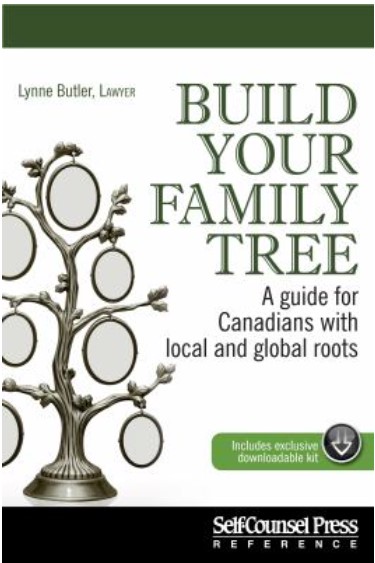 On order at the Ottawa Public Library, destined for the Blackburn Hamlet branch, this topic appears to be a bit of a departure for Lynne Butler, who “has worked in estate planning and law for over 25 years. She is a frequent speaker on will and estate matters, and has been a Learning Group facilitator for the Wills and Estates module of the bar admission course in Alberta.”
On order at the Ottawa Public Library, destined for the Blackburn Hamlet branch, this topic appears to be a bit of a departure for Lynne Butler, who “has worked in estate planning and law for over 25 years. She is a frequent speaker on will and estate matters, and has been a Learning Group facilitator for the Wills and Estates module of the bar admission course in Alberta.”
Perhaps not so much of a departure, as the book is more focused than the title suggests.
“Build Your Family Tree explains how a will or probate record can offer a much more robust image of lives lived and legacies left. Wills are underused in genealogy research. This may be because many family genealogists use primarily online sources for research and most wills are not found online; it could also be because the documents are usually in old, unfamiliar, handwritten script and are not easy to read. With a little work, you could uncover some surprises or a treasure trove of information. Even genealogy enthusiasts who are willing to look for wills may not fully appreciate just how useful probate and related records can be. In this book you will find an explanation of what sorts of probate records exist and where to find them.”
Publisher : Self-Counsel Press; 1st edition (November 15, 2022)
Language : English
Paperback : 240 pages
ISBN-10 : 1770403469
ISBN-13 : 978-1770403468
Item Weight : 0.035 ounces
Dimensions : 6 x 0.5 x 9 inches
While the book is not on the Self-Counsel Press website, it’s listed on Amazon at $49.95 for the paperback!
 Findmypast, an essential resource for the UK family historian, sent an offer of 20% off selected subscriptions in a 48-hour flash sale. It’s available on all 1- and 12-month subscriptions.
Findmypast, an essential resource for the UK family historian, sent an offer of 20% off selected subscriptions in a 48-hour flash sale. It’s available on all 1- and 12-month subscriptions.
Act quickly.
The discounted offer is available until 5 am EDT Friday, 30 September.
Use code SAVE20 on any 1- or 12-month subscription.
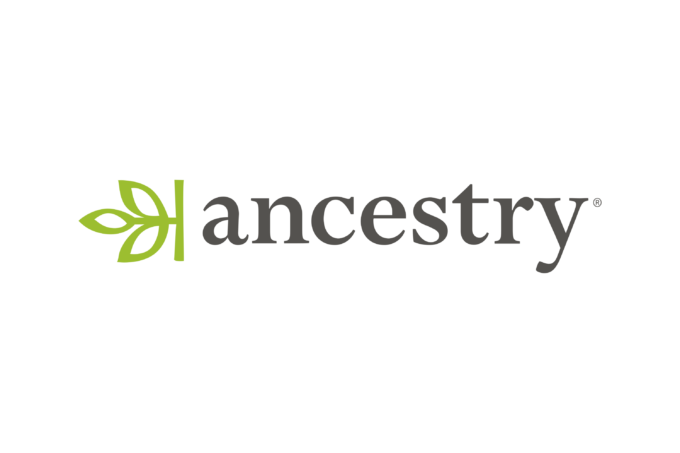 This addition to Ancestry’s Directories & Member Lists contains data for 150,226 people unfortunate enough to be caught in a mining accident. That’s 2,057 each year.
This addition to Ancestry’s Directories & Member Lists contains data for 150,226 people unfortunate enough to be caught in a mining accident. That’s 2,057 each year.
Compiled by Ian Winstanley, the index may include:
Names
Event type
Date of the event
Residences of coal miners
Names of mine owners
Occupation
Birth year
Notes about the event
The collection is not complete. For instance, no incidents are recorded for Bedwas Navigation Colliery in Monmouthshire for 1872 to 1909 and 1915 to 1924.
For further information see the source at https://www.cmhrc.co.uk/site/disasters/index.html
The focus this week is the presentations during BIFHSGO conference 2022.
Choose from selected free online events in the next six days. All times are ET except as noted. Those in red are Canadian, bolded if local to Ottawa or recommended. Assume registration in advance is required; check so you’re not disappointed. Many additional events are listed at https://conferencekeeper.org/virtual/
Tuesday 27 September, 2 pm: Sweden Research with Online Records at MyHeritage and Beyond, by Mike Mansfield for Legacy Family Tree Webinars and myHeritage.
https://familytreewebinars.com/webinar/sweden-research-with-online-records-at-myheritage-and-beyond/
19:00-20:00 / The Journey to Genealogy Services at Ādisōke / Robyn Feres-Cameron (LAC), Julie Roy (LAC)
Wednesday 28 September, 2 pm: Start with You: Writing About Yourself, by Brenda Hudson for Legacy Family Tree Webinars.
https://familytreewebinars.com/webinar/start-with-you-writing-about-yourself/
Wednesday 28 September, 2 pm: Getting started on Ancestry.ca, by Crista Cowan for Canadian Association of Retired Persons.
https://www.eventbrite.ca/e/getting-started-on-ancestryca-with-barefoot-genealogist-crista-cowan-tickets-412315917007
September, 7 pm: Failure to Revolt? Why Winnipeg Had a General Strike in 1919 and Ottawa Did Not, by Brian McDougall for Historical Society of Ottawa.
https://www.historicalsocietyottawa.ca/activities/events/eventdetail/68/16,17,19,21/failure-to-revolt-why-winnipeg-had-a-general-strike-in-1919-and-ottawa-did-not
Thursday 29 September
BIFHSGO Conference
12:00–14:00 / Society Connect
14:30–15:30 / Great War Widows and Emigration / Andrea Hetherington
16:00–17:00 / Maps for Family Historians / Alan Ruston
17.30–18.30 / Liverpool: an essential emigration port / Paul Milner
Friday 30 September, 10:15 am: The Top Ten DNA Do’s and Don’ts!, by Michelle Leonard for Legacy Family Tree Webinars Webtember.
Friday 30 September, 11:30 am: Separate Even in Death – Black Funerals and Cemeteries, by Janice Lovelace for Legacy Family Tree Webinars Webtember.
https://familytreewebinars.com/webinar/separate-even-in-death-black-funerals-and-cemeteries/
Friday 30 September, 12:45 pm: Indirect Evidence, A Case Study: The Parents of Elizabeth Wingate in Maryland (1795–1860), by Rebecca Whitman Koford for Legacy Family Tree Webinars Webtember.
https://familytreewebinars.com/webinar/controlling-chaos-managing-a-genealogical-project/
Friday 30 September, 2 pm: 50 Mostly “Hot off the Press” Net Sites You Want to Check Out!, by Diane L. Richard for Legacy Family Tree Webinars Webtember.
https://familytreewebinars.com/webinar/50-mostly-hot-off-the-press-net-sites-you-want-to-check-out/
Saturday 1 October
BIFHSGO Conference
10:00–11:00 / Emigration from England / Caroline Gurney
11:30–12:30 / Welsh Newspapers in the National Library of Wales / Beryl Evans
13:00–14:00 / In and Out of London / Ian Waller
14:30–16:30 / Vendor Connect
Sunday 2 October
BIFHSGO Conference
10:00–12:00 / Conference Connect
12:30–13:30 / The Poor and the Parish in England and Wales / Gill Blanchard
14:00–15:00 / Farm, Fish, Faith or Family: motivations for emigrating from North Devon emigration 1830 to 1900 / Dr. Janet Few
15:30–16:30 / Life at Home and on the Sea / Mia Bennett
 On Friday, 30 September the Canadian Museum of History and Canadian War Museum are open from 9 a.m. to 5 p.m., with free admission all day.
On Friday, 30 September the Canadian Museum of History and Canadian War Museum are open from 9 a.m. to 5 p.m., with free admission all day.
This is in recognition of the second National Day for Truth and Reconciliation, also known as Orange Shirt Day. This day recognizes the legacy of residential schools and honours the lost children and survivors of residential schools, their families, and their communities.
At both museums the film Picking Up the Pieces: The Making of the Witness Blanket will be shown from 10 a.m. to 5 p.m.
Admission is free, but you meed to book a timed ticket online before your visit.
You may see them huddled together at family history society meetings, comparing notes on their latest finds.
It could be about the cousins they have in common, or to do with another interest they share.
It’s a passion for some who will be particularly interested in two books by Nicholas Milton, published by Pen and Sword this year because they also relate to the military.
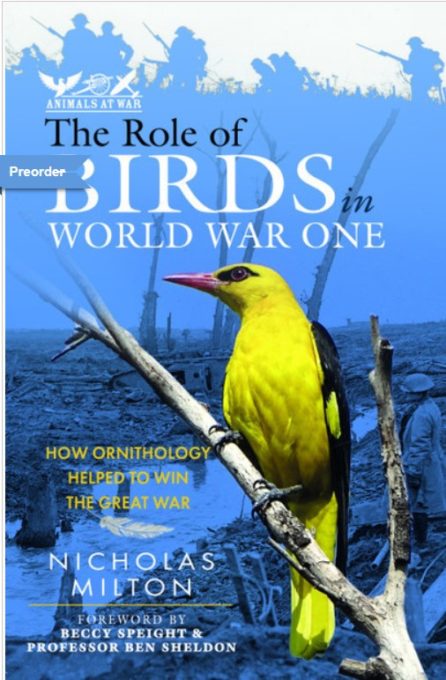 The most recent, published 30 September, is The Role of Birds in World War One: How Ornithology Helped to Win the Great War.
The most recent, published 30 September, is The Role of Birds in World War One: How Ornithology Helped to Win the Great War.
The British Expeditionary Force sent to France in the late summer of 1914 has been referred to as ‘The Best British Army Ever Sent to War’ as it was one of the most highly trained and disciplined forces in the world. It was also the ‘Best Birdwatching Army Ever Sent to War’ for among its ranks were hundreds of both amateur and professional ornithologists. When not fighting many soldiers turned to birdwatching as a way of whiling away the long hours spent on guard duty or watching over ‘no man’s land’. As a result, the hobby ranked as one of the most popular past-times for soldiers at the front, on a par with smoking, writing, games, gambling, sport and shooting rats. The list of birds seen by soldiers serving in all the theatres of war was truly impressive ranging from the common like sparrows, skylarks and swallows to the exotic like golden orioles, hoopoes and bee-eaters.
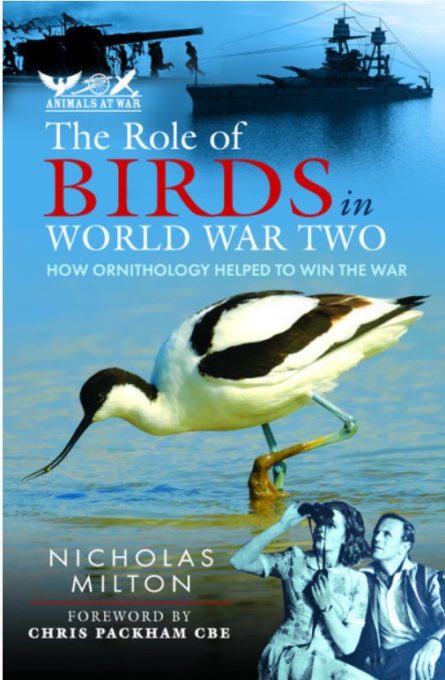 Earlier this year, Pen and Sword published The Role of Birds in World War Two: How Ornithology Helped to Win the War.
Earlier this year, Pen and Sword published The Role of Birds in World War Two: How Ornithology Helped to Win the War.
A love of birds has always been an important part of the British way of life but in wartime birds came into their own, helping to define our national identity. One the most popular bird books ever, Watching Birds, was published in 1940 while songs like There’ll be Bluebirds over the White Cliffs of Dover epitomized the blitz spirit. Birds even featured in wartime propaganda movies like the 1941 classic The First of the Few starring Leslie Howard where they inspired the design of the Spitfire. Along the coast flooding to prevent a German invasion helped the avocet make a remarkable return while the black redstart found an unlikely home in our bombed-out buildings.
Miscellaneous items I found of interest during the week.
Our taxes are put to such worthwhile use!
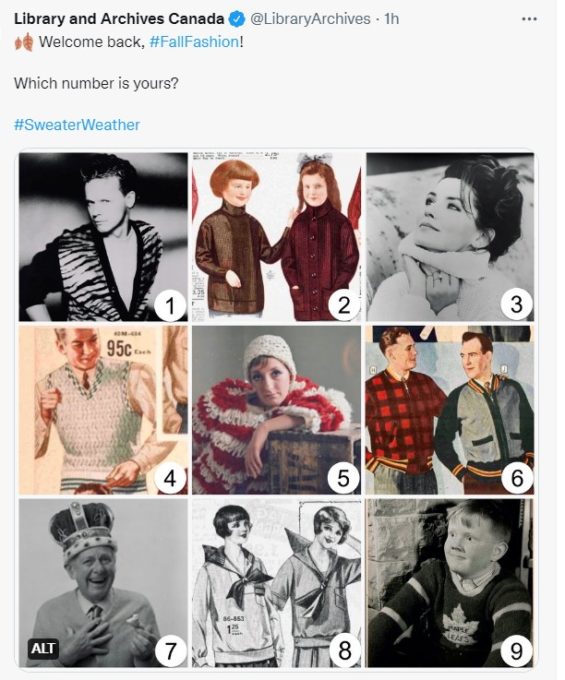
Probabilistic predictions
via Data Is Plural — 2022.09.21 edition
Metaculus is a forecasting platform whose community has registered more than 1 million predictions on questions such as “Will a major nuclear power plant in Germany be operational on June 1, 2023?” The website’s API provides data on questions posed, user rankings, and other aspects of the platform. For each question, you can see its phrasing, date posed, creator, prediction type, the distribution of predictions, and more.
The British Were Harvesting Soldiers’ Organs During WWI
Gaelic recordings made in Nova Scotia
Europe Free Online Historical Newspapers
The Ancestor Hunt has started this section. Nothing for the UK yet which is “under construction.”
Six recent discoveries that have changed how we think about human origins
Social media greenwashing by fossil fuel interests
Thanks to this week’s contributors: Anonymous, Brenda Turner, Glenn Wright, Sylvia Smith, Teresa, and Unknown.

 Have you been to the parish of Selbourne in Hampshire? It’s the focus of this week’s FMP additions. Over 2,500 additional baptisms bring the parish total to 4,636. There are now 2,123 marriage and 4,482 burial records, all transcripts.
Have you been to the parish of Selbourne in Hampshire? It’s the focus of this week’s FMP additions. Over 2,500 additional baptisms bring the parish total to 4,636. There are now 2,123 marriage and 4,482 burial records, all transcripts.
Some of the early records were for services conducted by pioneering English naturalist, ecologist, and ornithologist Gilbert White (1720 – 1793), a sometime curate at Selbourne.
He is best known for his Natural History and Antiquities of Selborne. A visit to his house and gardens is worth the detour when in the area.
The Women’s Land Army was established to help the UK boost its wartime food production. Records in this collection consist of index cards to Second World War service records and are usually handwritten and are organised alphabetically by last name.
This collection of 91,069 cards includes the following details:
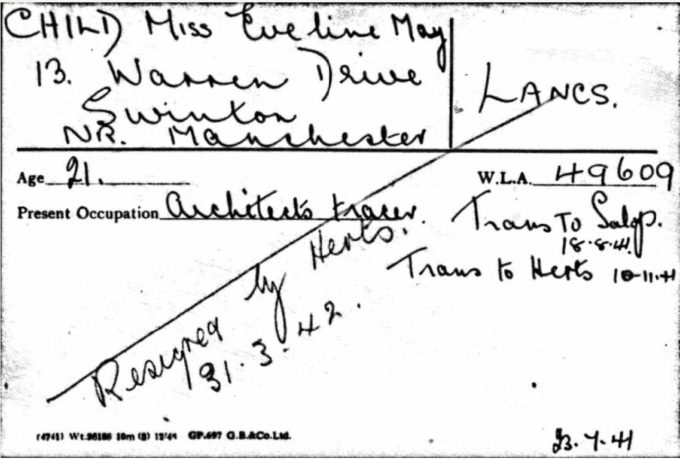
The example is picked at random. The majority of women employed by the WLA were young and likely unmarried at the time of their enrollment. If she married during the war search by both her maiden and married names.
Interesting that these Second World War era records are open but regular military records are not.
 Canada, British Columbia, Vancouver Mountain View Cemetery
Canada, British Columbia, Vancouver Mountain View Cemetery
139,337 records.
This collection contains burial registration records dating from 1880 onwards and typically include the name of the deceased, the date and place of birth, the date and place of death, and the date and place of burial.
The cemetery, established in 1886, holds graves of 330 war dead of the First World War; 258 of the Second including 11 serving with UK forces.
Contents are licensed under the Open Government Licence – Vancouver and also available at https://covapp.vancouver.ca/burialindex/.